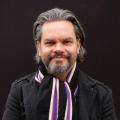
St Albans parents whose daughter suffered life-changing head injuries on her way to her school prom are backing a bill to improve the situation for survivors of Acquired Brain Injuries (ABI).
Peter and Pauline Freeman's daughter Nicky was just 17 when the Ford Fiesta she was driving during heavy rain in May 2010 collided with a tree.
After her accident she was transferred to the National Hospital for Neurology and Neurosurgery in Queen Square and spent a month in a coma in ITU, during which time her classmates at St Albans High School raised £5,000 for the facility.
She left ITU on the day of her 18th birthday, barely conscious, unresponsive and making no purposeful movement, and it was many days before she made her first deliberate move.
Peter explained: "We were incredibly fortunate that everything went largely in Nicki’s favour. After Queen Square Nicki spent 11 months in the Regional Rehab Unit at Northwick Park Hospital, effectively starting to relearn everything she had learnt in the prior 18 years. Swallowing, sitting standing, walking a few steps with a giant baby walker."
Nicki underwent further therapy, even attending her school prizegiving that December and walking a short distance to receive an award.
She then spent a year at the Queen Elizabeth’s Foundation Neurorehabilitation Service in Banstead, where she learnt to do things like dress in something other than jogging bottoms, put on her own bra and tie shoelaces.
Her family fought to secure her funding to go to National Star College in Cheltenham, a specialist college for children with severe and multiple disabilities, where she and her friends were filmed as part of BBC documentary The Unbreakables.
Nicki now lives back in St Albans as part of the Camphill community, who support her as she continues to rebuild her life and relearn the skills and abilities she lost in just a few moments in 2010.
Peter said: "We have always appreciated how much support we received from the hundreds of people involved in Team Nicki and the mission of helping her rebuilding of a life, and realised that our experiences could help make the pathway easier for the next family that had to walk the long and dark road we had."
Peter and Pauline discovered other brain injury survivors spent less time in rehab than Nicki due to a lack of support, and Peter joined the small charity UK Acquired Brain Injury Forum (UKABIF), which focuses on changing outcomes by raising awareness of ABI and obtaining better provision for rehabilitation.
"We supported the reforming of the All-Party Parliamentary Group (APPG) on Acquired Brain Injury which produced a powerful report highlighting the financial and emotional costs of failing to provide appropriate rehabilitation post-ABI and the effects this has on over a million ABI survivors and their families."
Group chairman Chris Bryant, MP for Rhondda, has now won a place for a Private Members Bill requiring the publication of an ABI strategy to improve the provision of relevant services for ABI survivors, which is being backed by over 200 other MPs including St Albans representative Daisy Cooper, and charities UK Acquired Brain Injury Forum, Headway, The Disabilities Trust, The Children’s Trust and the Child Brain Injury Trust.
The cross-party bill has its second reading in the Commons on December 3, and on Monday Peter joined Chris Bryant to present a letter to the Prime Minister at No 10 Downing Street calling for his support.
Chris Bryant said: “We need to give people back their quality of life after they have had an Acquired Brain Injury. This affects more than one million people in this country and the government must have a plan to ensure every child and adult is properly supported.
"My bill simply asks the government to prepare and publish a strategy so that there is cross-departmental working to meet the needs of everyone with an ABI. I know this will make a huge difference to many people and hope the Prime Minister will listen to those affected and take action."
Peter added: "This bill will significantly improve the journeys and recoveries of ABI survivors and their families which is going to make the journey of those in our situation so much better in the future."



Comments: Our rules
We want our comments to be a lively and valuable part of our community - a place where readers can debate and engage with the most important local issues. The ability to comment on our stories is a privilege, not a right, however, and that privilege may be withdrawn if it is abused or misused.
Please report any comments that break our rules.
Read the rules here